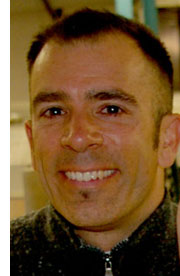 This illustration demonstrates how an underwater compressed air energy storage system works.
This illustration demonstrates how an underwater compressed air energy storage system works.
Storing energy underwater is new technology still in its infancy but has tremendous potential for industrial growth, and there’s no reason Windsor-Essex can’t get in on the action, according to an engineering professor.
Rupp Carriveau, a professor in civil and environmental engineering, has spent the last several years working with industrial partners Hydrostor on researching and developing a method of converting energy generated by both traditional and renewable sources into compressed air, which would be stored in huge receptacles – much like the inflatable bags used in marine salvage operations – that would be moored offshore to the floor of a lake or ocean.

It’s a system that would store energy generated by renewable sources like wind and solar that’s not required during off-peak hours, and could solve the problem of intermittent supply caused by mechanical failure, by operating as a backup supply of energy, Dr. Carriveau said. When the energy is required, the compressed air would simply be released to the surface – aided largely by the water pressure caused by submersion – and converted back in to electricity.
It’s a process which has already been deployed in a pilot project in Toronto, with bags being moored to the floor of Lake Ontario last summer. If successfully deployed elsewhere, the technology could expand on a global scale, which would require the manufacturing and skilled trade know-how in plentiful supply in this region, Carriveau said.
“There’s a lot of infrastructure that has to go into this, both offshore and onshore,” he said. “Just as this area supplies so many parts globally for the auto industry, this offshore energy industry has many of the same parts requirements. With the parts technology we’ve developed here for the auto industry, there’s no reason the same can’t be done for this industry.”
Along with partners at the University of Nottingham, the Massachusetts Institute of Technology and the University of Massachusetts, Carriveau and his colleague David Ting have established the Underwater Compressed Air Energy Storage Society. Its aims include gathering relevant science and engineering knowledge on the subject; establishing contacts between experts in the field; providing realistic, accessible information to those in the best applications for the technology, and; to act as a unified voice to champion the marketing of the technology.
Seamus Garvey, an enthusiastic supporter of the concept and a partner from the University of Nottingham, said energy companies are realizing energy storage is absolutely critical.
“It’s a fabulous concept because it gives you an energy store which is cheaper than most other possibilities,” he said. “I believe costs of these machines can be much lower than the costs of machines which generate electricity directly – if we think about them right.”
.jpg)
The society, which also includes industrial partners from across Canada and around the world, will hold its first annual conference at the university this summer. Carriveau hopes area industries with the potential to expand the sector and grow their own business will attend.
“There are people working with our research group from the automotive sector that we’ll be introducing to this technology as a starting point, and we’ll be asking them to bring their colleagues,” he said.
Carriveau will appear today on Research Matters, a weekly talk show that focuses on the work of University of Windsor researchers and airs every Thursday at 4:30 p.m. on CJAM 99.1 FM.
